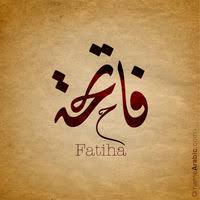The disease of the heart occurs due to two basic matters:
The corruption of knowledge
The corruption of intent.
These in turn lead to two fatal illnesses: misguidance and anger. Misguidance being the end result of the corruption of knowledge and anger being the end result of the corruption of intent. These two illnesses are the lords of all the diseases of the heart.
When one asks for guidance to the Straight Path then he is asking for that which will cure the disease of misguidance. This is why this Surah has been made obligatory upon every servant in every prayer.
Actualising the verse, “You Alone we worship and You Alone we ask for help” serves as a cure for the corruption of intent. This is because the intent is linked to the objectives and means of attaining them. Therefore this cure is composed of six matters:
- Worshipping Allah Alone
- By performing what He commanded and legislated
- Not by following ones own desires
- Neither by following the mere opinions of people
- By asking Allah for His Help to enact this
- And not relying on oneself
Furthermore the heart is beset with two dangerous and destructive diseases and this verse serves as a cure for them. Ibn Taymiyyah said,
‘You Alone we worship’ represses ostentation and ‘You Alone we ask for help’ represses arrogance.
As regards its curing the bodily illnesses then this can be seen in the hadeeth of Abu Sa`eed, RadhiAllahu Anhu, reported in Saheeh Bukhari that after he had recited it to cure a person who had been bitten by a scorpion, the Messenger of Allah ﷺ said to him,
“And what made you to know that it was a ruqya?“
Surah al-Faatihah Comprises the Meaning of the Entire Qur’aan:
As alluded to earlier, al-Faatihah is named the Mother of the Qur’aan because it succinctly summarises the whole of the Qur’aan. We are now in a position to analyse this statement further.
The Surah includes affirmation of Tawheed in all of its various categories,
Tawheed ar-Rububiyyah, meaning unity of Allah’s Lordship, contained in His saying, “Lord of the Universe.”
Tawheed al-Uluhiyyah, meaning unity of Allah’s worship in that all worship is to be done sincerely for His sake Alone, contained in His saying, “You Alone we worship and Your aid Alone we seek.”
Tawheed al-Asmaa was Sifaat, meaning the unity of Allah’s Names and Attributes in that they are perfect and unique to Him, contained in His saying, “all praise and thanks are due to Allah.”
It teaches us to praise and glorify Allah by mentioning His beautiful and perfect Names and Attributes.
It teaches us about His Mercy and His Justice.
It teaches us about the Day of Judgement and about the recompense of our deeds.
It teaches us that the recompense will be established upon perfect justice.
It encourages one to perform righteous actions and dissuades one from performing sins.
It teaches the servants of Allah to ask of Him Alone, to humble themselves and worship Him Alone and to put their trust and reliance in Him Alone.
It teaches us to ask Allah continuously for guidance to the Straight Path.
It points us towards the nations of the past and warns us against falling into the same acts of transgression and misguidance that they were guilty of.
It teaches us to aspire to the company of the sincerely truthful, the martyrs and the righteous.
It teaches that there is nothing in the Qur`aan that would give aid to or encourage innovation. Hence never will the innovator be able to find evidence for his misguidance in the Qur’aan.
Mawdudi states,
Al-Faatihah is actually a prayer that Allah teaches to all who embark upon the study of His Book. Its position at the beginning signifies that anyone who wants to benefit from the Book should first offer this prayer to the Lord of the Universe.
Man naturally prays only for what his heart desires and only when he feels that the object of his desire is at the disposal of the One to Whom his prayer is addressed. The placing of this Surah at the head of the Qur’aan is a sign that Allah urges man to read this Book with the aim of discovering the right course in life i.e. the Straight Way, to study it with the earnestness of a seeker after Truth, and never to forget that the real source of true knowledge is Allah Himself. The student of the Book should therefore begin by making a humble petition to Him for true guidance.
Once this is grasped, it becomes self-evident that in relation to the Qur`aan this opening Surah, al-Faatihah is not just an introduction or foreword; the relationship is really one of prayer and response. Al-Faatihah is a prayer from man, and the rest of the Qur’aan is Allah’s response to this prayer. Man prays to Allah that He may show him the Straight Way and in response to this prayer Allah offers the Qur`aan as the true guidance, the Straight Way which man has sought and prayed for.
And all praise and thanks are due to Allah, the Lord of the Universe.

